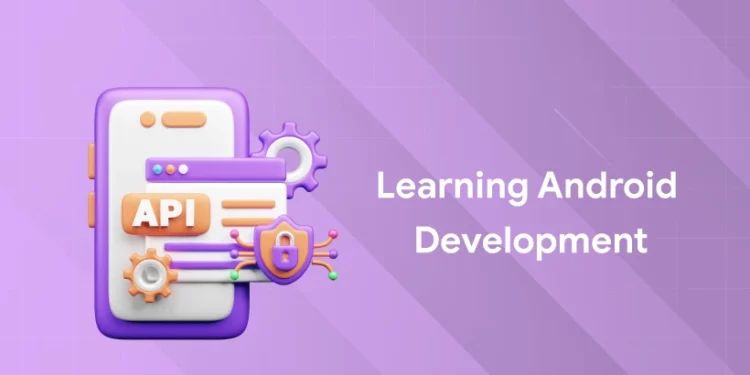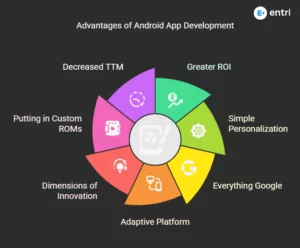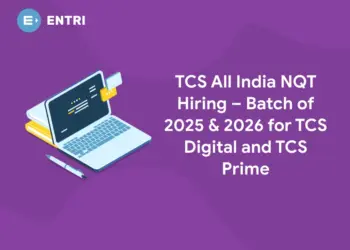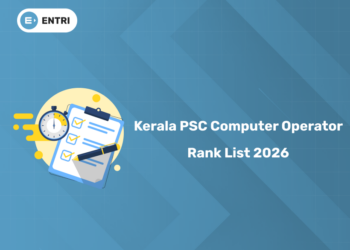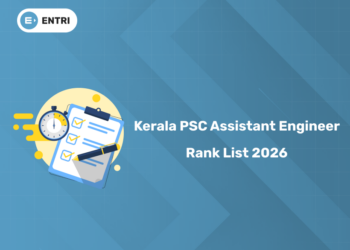Table of Contents
The world of Android development is ever-expanding, with new features and possibilities being discovered on a regular basis. As a result, the hunger for learning Android is never quenched. Let us dive into the aspects of learning Android development in 2025.
Check out this video by Entri in Malayalam!
Introduction
Of all the many mobile operating systems available worldwide, Android has the largest installed base. Android is the operating system for hundreds of millions of mobile devices in more than 190 different nations. It holds over 72.15% of the global market share 2025, and this trend is accelerating daily. The first open-source operating system, Android, was developed by a company called Open Handset Alliance and is based on a modified Linux kernel. Google first provided funding for the project before ultimately acquiring it in 2005.

Source: Wikipedia
In September 2008, the first mobile device running on Android was released. Android is the industry leader in mobile operating systems due to the wide feature set it provides. Numerous companies make Android-compatible devices, and it has a big community and greater customization options. The market has experienced a sharp increase in demand for developing Android mobile applications as a result.
Businesses increasingly seek knowledgeable developers with the necessary skill-set as a result. Android was first intended to be an operating system for mobile devices. Android has changed into a set of programs that operates on all gadgets, including tablets, wearables, set-top boxes, smart TVs, notebooks, etc., thanks to the growth of code libraries and its acceptance by programmers in a variety of sectors.
Thinking about developing an app? Create one with Entri’s Flutter training course!
Android features
- Android Open Source Project enables us to modify the OS to meet our needs.
- Android provides a variety of connectivity options for telephonic communication or data transmission, including GSM, CDMA, Wi-Fi, Bluetooth, etc.
- While playing games or using other programs, we can couple with other devices via Wi-Fi technology.
- To support location-tracking services like GPS, it has many APIs.
- Using the file manager, we may control every activity linked to data storage.
- With the aid of a camera and microphone, it provides multimedia hardware control for playing and recording.
- An open-source WebKit layout-based web browser is included in Android to enable user interfaces like HTML5 and CSS3.
- Because Android allows for multitasking, we can run several applications simultaneously and switch between them.
Become an Android App Developer with Entri’s Flutter training course! Join Now!
Benefits of Learning Android App Development
Built on Linux, Android is a free and open platform. The Android Application Development Company also provides a full software stack for mobile devices, including an operating system, middleware, and essential mobile applications. The comprehensive offers of Android and the proliferation of new Android devices increased the need for Android app development. Let us look at the key benefits of learning android app development.
-
Greater ROI
Android’s Software Development Kit (SDK) is easily accessible to developers because it is an open-source platform. Furthermore, creating Android apps is inexpensive. The app development cycle can be broadly divided into three phases: app design and development, app testing, and app deployment. The cost of the entire development cycle is little. Additionally, material design is easily used by Android app developers, allowing you to address a large global audience at a lesser cost with an appealing and interactive Android app.
-
Simple Personalization
Android is a flexible platform that offers simple customization choices. All you get is a unique, engaging enterprise app with a variety of features. Android is a powerful operating system that can accommodate both basic and complicated customizations. With this platform, your business requirements can be successfully met.
-
Everything Google
This is one of the key advantages of using an Android app. iOS provides access to a wide range of Google services, but there is still a lack of thorough integration. You may provide your app’s users access to Google’s services and apps by developing an Android app exclusively for your business. Additionally, any new services or apps that Google produces can be simply integrated into your Android app.
-
Adaptive Platform
Many well-known firms, like Samsung, and OnePlus, produce Android devices. To stay strong in the face of increasing competition, they continually introduce new capabilities, and the Android developer community rapidly becomes accustomed to them. Android OS brought HD displays, NFC, and mobile payments. The benefit of this developing platform is also available to you when you choose an Android app.
-
Dimensions of Innovation
The Android platform’s widespread use around the world is its greatest asset. By utilizing cutting-edge techniques and technical breakthroughs, Android app developers may assist you if you wish to target a certain audience with some cutting-edge features. High-end app solutions that integrate cutting-edge technologies like AR and VR are available at affordable prices. In a manner, Android provides a lot of room for experimentation and creates new business possibilities.
-
Putting in Custom ROMs
With custom ROMs, it is simple to alter the app’s appearance and functionality. By installing custom ROMs, you can modify Android smartphones according to your business model and strategies. Since ROMs are created by a team of core developers as a hobby, the majority of them are entirely free. These ROMs have the potential to drastically alter how mobile apps are created, and businesses can take advantage of the advantages.
-
Decreased TTM (Time To Market)
To gain an advantage over your competitors, you must develop a business app as soon as feasible. Tools for developing Android apps can speed up the process and make it simple to incorporate desired functionality. An Android app for your business can be developed by seasoned developers in less time, and you’ll benefit from a lower TTM.
Master Android app development with Entri. Enrol now to elevate your career!
Android Development Course
Android app development courses have been trending these days. Many aspirants are taking online courses for android development and starting their dream careers in the software development field. Let us look at some of the android development courses which help the aspirants to choose from.
Entri’s Flutter Training Course
Online course of 6 months duration that equips learners with the skills to build high-performance, cross-platform applications using Google’s Flutter framework and the Dart programming language. The course provides live interactive sessions and a certificate from Illinois Technological University. Entri’s dedicated placement support can help you get started for the job market as well.
Skills Covered:
- Flutter UI Design
- Dart Programming
- State Management
- Backend Integration
- App Deployment
Flutter and Dart Training by FITA
-
Overview: Offers in-depth training on Flutter and Dart, focusing on mobile app development.
-
Access: Available on the FITA website.
Flutter App Development Course for Android & iOS – Udemy
-
Overview: A comprehensive course covering Flutter development for both Android and iOS platforms.
-
Access: Available on Udemy.
Flutter Courses and Certifications
-
Overview: A curated list of Flutter courses and certifications from various platforms.
-
Access: Available on Class Central.
Conclusion
The most widely used operating system for smartphones is Android, and Java developers with experience creating Android apps are in high demand. The only problem is that Android is expanding so quickly that a new version is launched every year. Because of this, it’s crucial for any Java or Android programmer to stay current, such as with Android 12 releases. These courses will assist you in updating your knowledge of new Android versions in addition to assisting you in learning Android from scratch.
|
Related articles |
|
| What Is An SDK in Android? (With Definition,Types And Benefits) | |
Frequently Asked Questions
How can I start learning Android development?
To embark on your Android development journey:
-
Learn a Programming Language: Start with Kotlin, as it is Google’s preferred language for Android development.
-
Understand the Android Application Lifecycle: Familiarize yourself with how Android manages applications and handles external events.
-
Learn the Basics of the Android Platform: Understand the fundamental components of Android applications and how to work with them.
-
Get to Know the Android Tools: Familiarize yourself with tools like Android Studio, Git, and Gradle.
-
Start With Small Projects: Begin by contributing to open-source projects to practice and improve your skills.
-
Distribute Your Project: Publish your app on platforms like the Google Play Store to share your work with a broader audience.
-
Share Your Journey as a Beginner: Engage with the developer community to seek help and share experiences
What are the fundamentals of Android app development?
Key fundamentals include:
-
Programming Languages: Proficiency in Java and XML is essential.
-
Tools and Environment: Knowledge of Android Studio and Eclipse is beneficial.
-
Application Components: Understanding components like Activities, Services, Content Providers, and Broadcast Receivers is crucial.
-
Performance and Responsiveness: Ensure your app responds promptly to user inputs to avoid application not responding (ANR) errors.
-
Resource Management: Efficient use of resources like battery and memory is important for optimal app performance.


